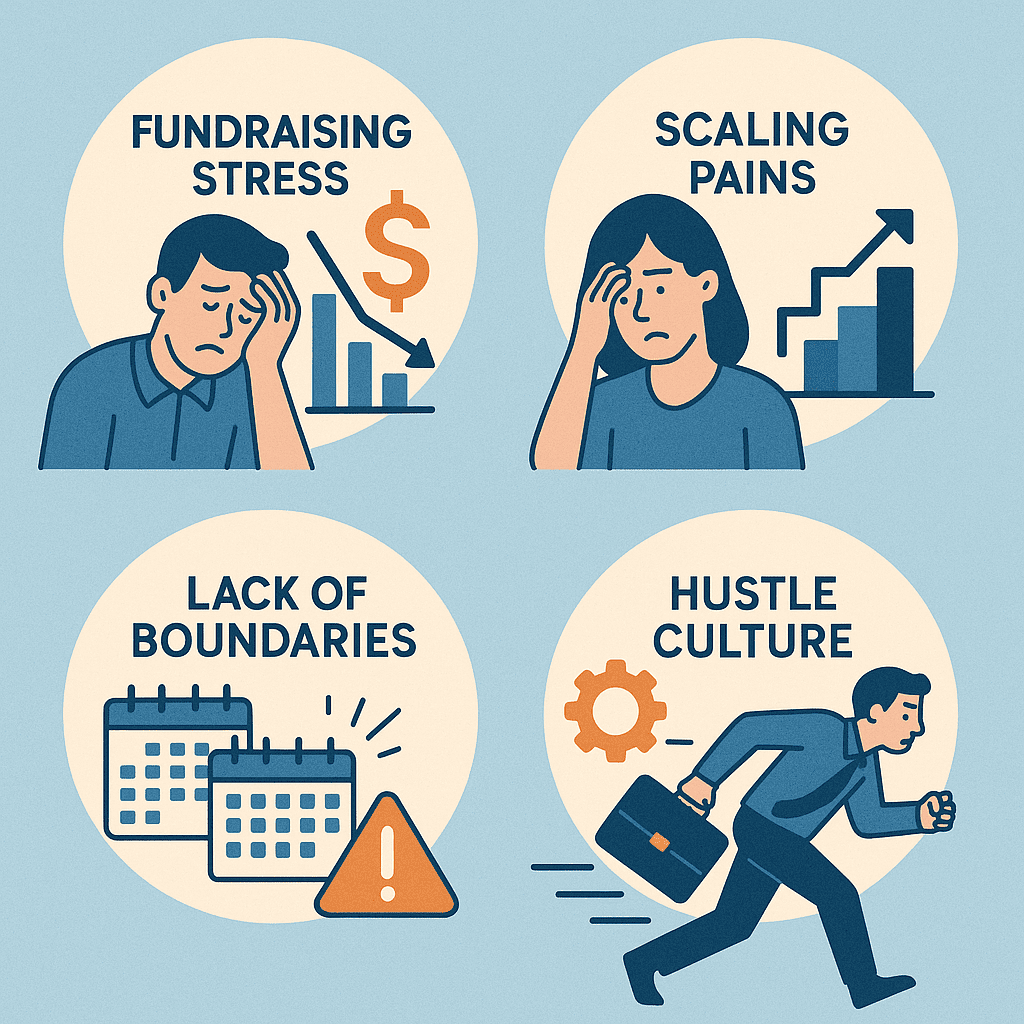Introduction
Every entrepreneur has asked the same haunting question: Is my idea good enough? The difference between a fleeting concept and a scalable business often lies in execution, timing, and clarity of vision. For years, Shark Tank has put this question to the test, offering founders a once-in-a-lifetime chance to pitch their ideas to some of the world’s most seasoned investors.
Understanding Startup Burnout
Burnout is more than fatigue. The World Health Organization defines it as a syndrome resulting from chronic workplace stress, marked by exhaustion, cynicism, and reduced effectiveness. For founders, these symptoms manifest uniquely:
- Decision fatigue from constant high-stakes choices
- Financial anxiety tied to cash flow and investor demands
- Isolation despite large networks, since vulnerability is often stigmatized
- Identity fusion where self-worth is tied to company performance

The Triggers Behind Founder Burnout
1. Relentless Fundraising Cycles
Securing capital is often a founder’s biggest stressor. Pitching to dozens of investors, facing repeated rejections, and balancing short cash runways create immense emotional strain.
2. Scaling Pains
Growth looks glamorous but often means firefighting. Managing rapid hiring, customer churn, and evolving product demands can feel like building a plane mid-flight.
3. Lack of Work-Life Boundaries
A 2023 Startup Snapshot survey found that 81% of founders work more than 60 hours per week, with nearly half admitting to sacrificing family life.
4. The Myth of Invincibility
Startup culture still romanticizes the “grind.” Founders may fear appearing weak if they admit exhaustion, reinforcing cycles of overwork.

Global Perspectives on Founder Burnout
In Silicon Valley, therapy and coaching have become standard perks, while in Asia, cultural stigma still makes mental health discussions more delicate. Meanwhile, in Nordic countries, government-backed founder wellness programs are gaining traction, reflecting a policy-level recognition of the burnout epidemic.
The Cost of Ignoring Burnout
Unchecked burnout doesn’t just end careers it can end companies. Research from Gallup shows burned-out leaders are 63% more likely to take sick leave and 2.6 times more likely to seek new roles, threatening startup stability.
One striking example is the downfall of Better.com’s culture under founder Vishal Garg, where unchecked stress led to toxic leadership and high turnover, eventually eroding investor confidence.

Conclusion: Building Sustainable Entrepreneurship
Startup burnout is no longer a silent epidemic it is a business risk that affects founders, teams, and investors alike. The most successful entrepreneurs of the future will not be those who work the longest hours, but those who build the strongest systems for resilience.
By prioritizing mental health, redefining productivity, and creating cultures of openness, founders can transform burnout from a breaking point into a turning point. The journey is not about surviving the grind, but about sustaining the vision.

FAQs
1. What are the first signs of founder burnout?
Exhaustion, irritability, poor sleep, and decreased decision-making ability are early red flags.
2. How common is burnout among startup founders?
Studies suggest over 70% of entrepreneurs face mental health challenges, with burnout as one of the top issues.
3. Can burnout affect startup valuation?
Yes. Investor confidence is tied to founder performance. Burned-out leaders often struggle to scale effectively, impacting valuations.
4. What’s the best way for founders to prevent burnout?
Proactive habits like exercise, therapy, delegation, and peer support networks are key.
5. Is talking about burnout seen as a weakness in startups?
Culturally it can be, but increasing awareness and open conversations are shifting perceptions globally.






